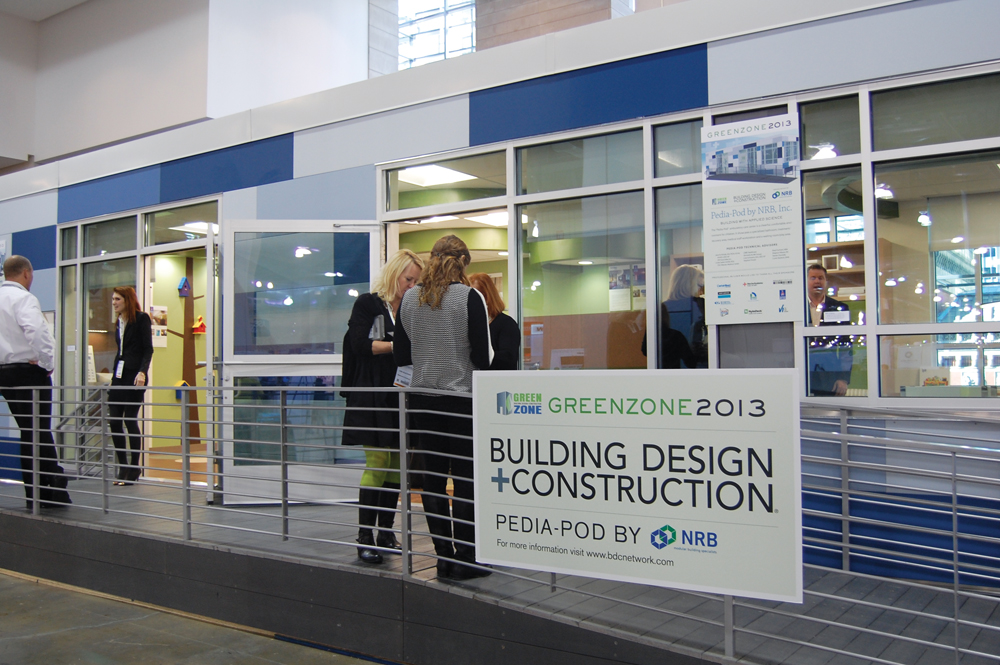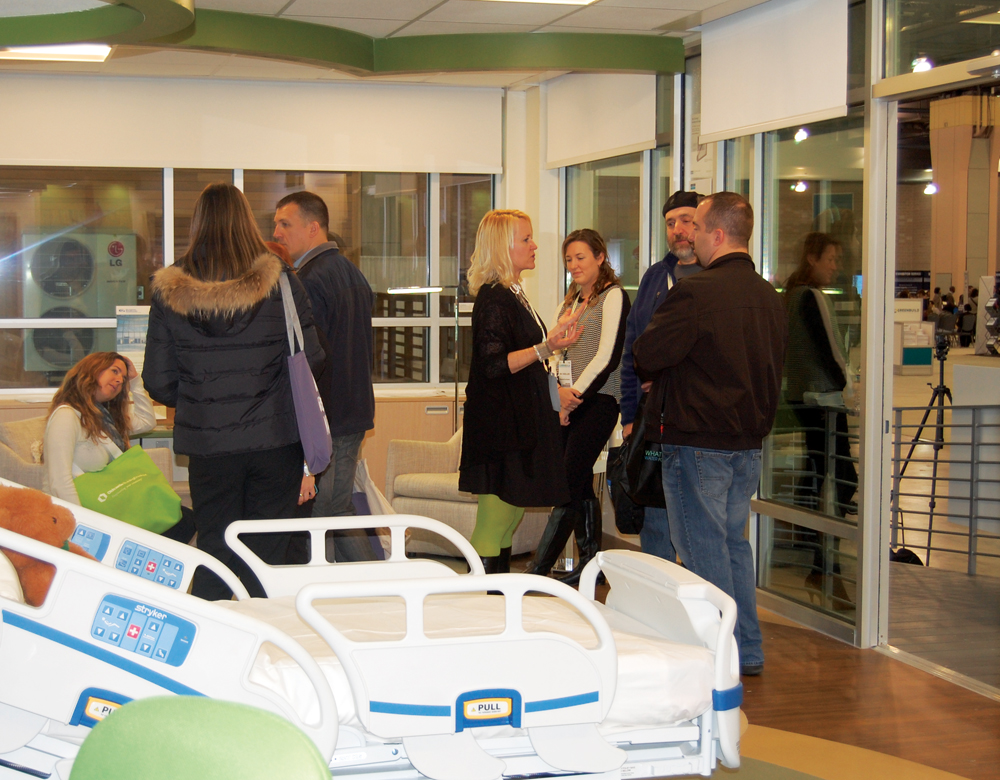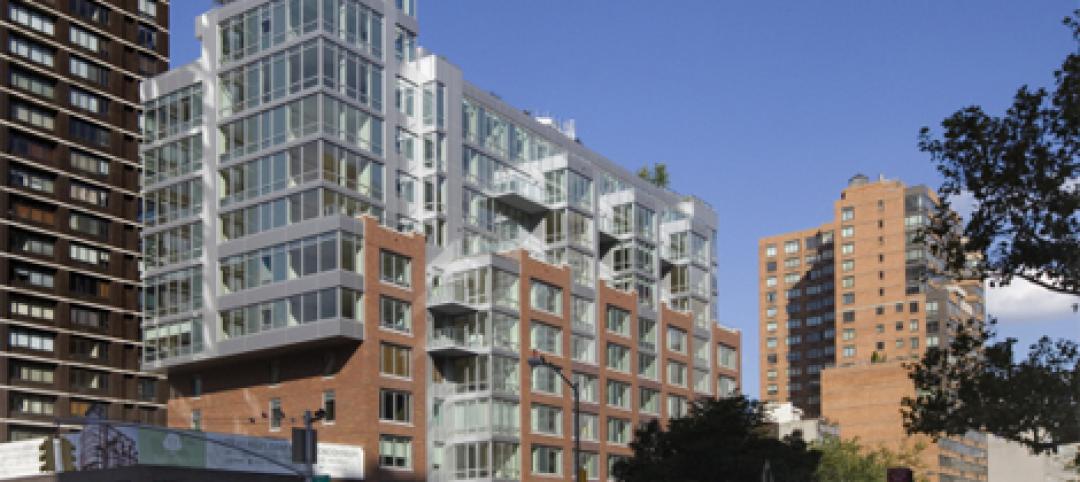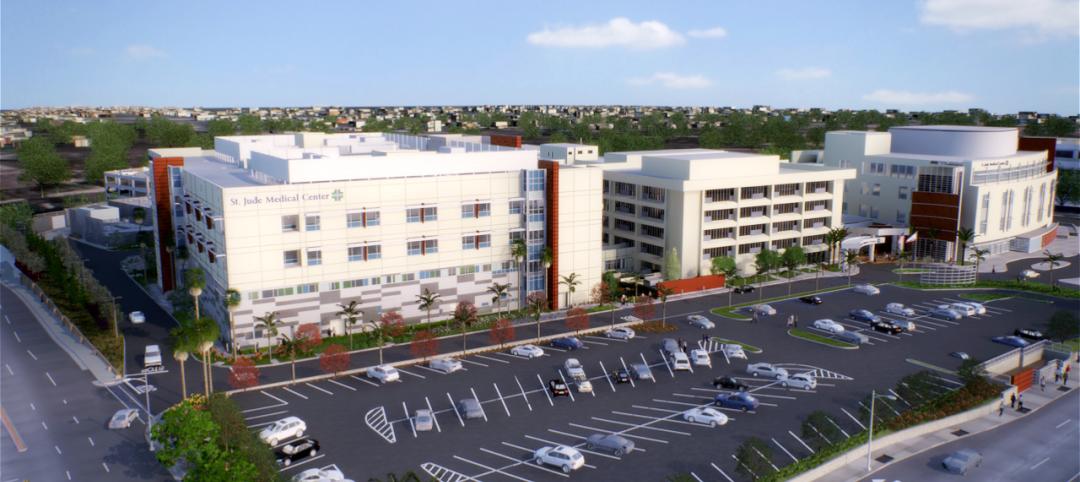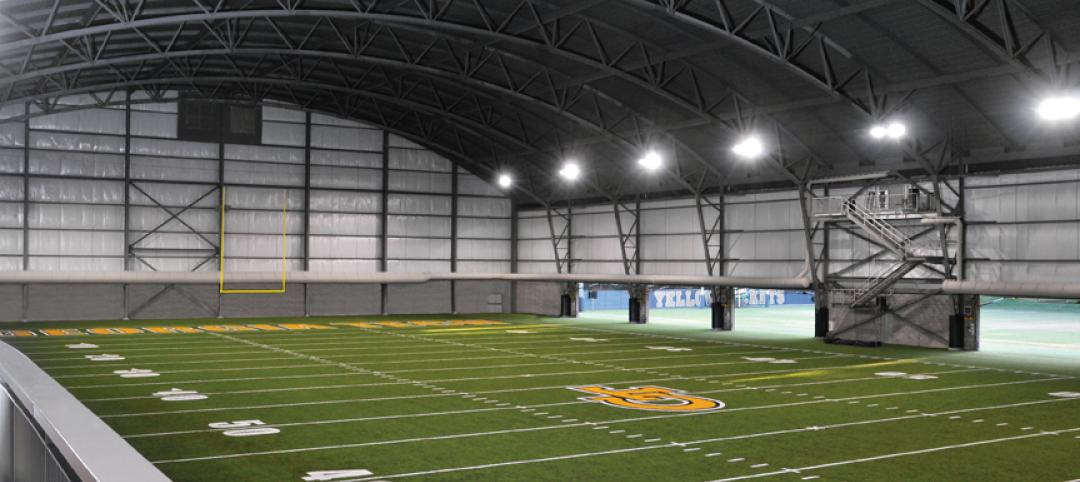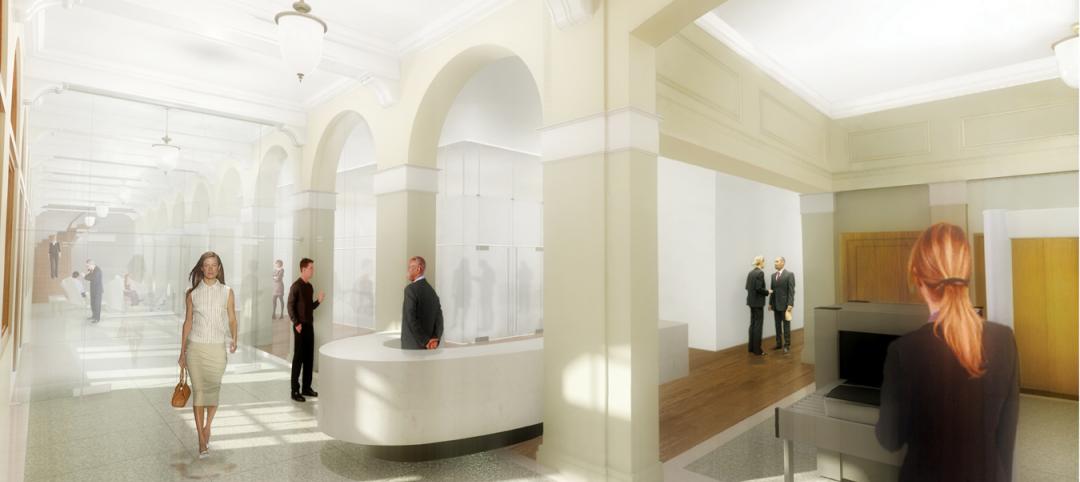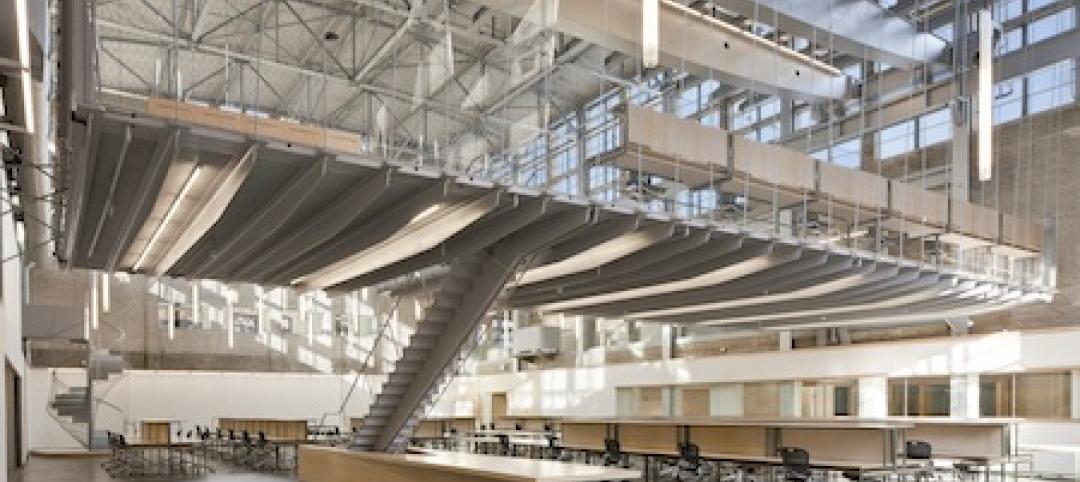Greenbuild 2013 in Philadelphia was the site of a unique display—Pedia-Pod, a modular pediatric treatment room designed and built by NRB (USA) in Ephrata, Pa., in collaboration with the editors of Building Design+Construction, SGC Horizon LLC, and their team of medical design consultants. More than a thousand Greenbuilders toured the modular unit on November 20 and 21 at the Pennsylvania Convention Center, in Philadelphia.
Off-site construction is gaining momentum and recognition within the AEC and building owner community as a viable alternative to traditional on-site construction methods. Pedia-Pod is a blend of architectural form and medical function that is relevant to the specialized, comforting care needed for the treatment of children.
The Pedia-Pod modular concept, with its sustainable design and construction principles, can be applied to many types of healthcare facility needs, from bathroom pods to physician offices, imaging clinics, ambulatory care centers, and even complete hospitals.
GROWING DEMAND FOR PREFAB IN HEALTHCARE
“We’re definitely seeing an increased demand for prefabricated and modular components being used in the healthcare market sector, especially with large hospital bed expansions and critical access hospitals,” said Allen Post, AIA, an architect with Perkins+Will’s Atlanta office who toured Pedia-Pod. “Whenever there is a lot of repetition, such as a patient bed tower with tens to hundreds of bathrooms, headwalls, and ceiling components, or rural area hospitals with a limited local construction labor force, off-site fabrication becomes a viable option.”
Post said that solutions that have the potential to reduce construction time and cost while improving quality and safety are becoming more accepted practices in the healthcare sector. “The Pedia-Pod prototype is an example of what off-site construction can achieve within the healthcare market,” he said.

Pedia-pod’s sofa can be converted into a pull-down bed (green area) for a parent who wishes to remain overnight with a hospitalized child.
Pedia-Pod combines green products with an efficient off-site construction process, creating a high level of sustainability.
Structural steel framing, steel deck, and steel stud infill lend durability to the building as well as a very high amount of recycled content. The building envelope contains closed-cell spray foam insulation with recycled content in the roof and floor, Greenguard-certified sustainable insulation in the walls, a specialized weather/rainscreen barrier, lightweight cement board subfloor, and mold- and moisture-resistant wall sheathing with 95% recycled content.
The structure has a white roof membrane with an SRI index of 99. The exterior cladding is a handsome architectural fiber cement panel containing Forest Stewardship Council–certified wood pulp and fly ash waste from landfills.
A unique interior drywall product actively removes harmful VOCs from the air, while another drywall component attenuates noise; both are moisture- and mold-resistant. The interior paint is a zero-VOC formula, and the floor finish is a long-lasting, slip-resistant product with recycled content requiring no harsh chemicals for cleaning. Millwork contains FSC-certified board.
The building also features high-performance windows, mechanized shades for daylighting control, energy-efficient lighting and controls, and water-saving plumbing fixtures.
“Building off-site in a controlled environment means better waste management, less vehicular travel, and less disruption at the site,” said Don Engle, General Manager, NRB (USA). “Because Pedia-Pod is one module, it was 100% complete when it left the plant. Once in place, it was set up and ready to go in just hours.”
After Greenbuild, Pedia-Pod was shipped back home to Ephrata and “recycled” for display purposes. Building owners, architects, and contractors will soon be able to tour the structure to see the level of complex features, finishes, and building science technology that off-site construction can bring to the healthcare and commercial/institutional construction markets.
For more on the Pedia-Pod, visit: http://www.bdcnetwork.com/greenzone2013/index.html

Mechanized roller shades let daylight in but can be closed with a handheld device from the patient bed for more privacy or less light.

A corner space offers comfortable seating for visitors and family members, plus a desktop area for parents wishing to catch up on work while the child is sleeping. Parts of the walls are covered with a dry-erase paint coating.

Artistic elements add color and ‘positive distraction’ for the child, as recommended by pediatric healthcare experts.

A cutout in Pedia-Pod’s cladding allowed Greenbuilders to see the correct method for installing energy-saving, high-performance vacuum insulation panels, a silicone air barrier system, and structural glazing sealant.
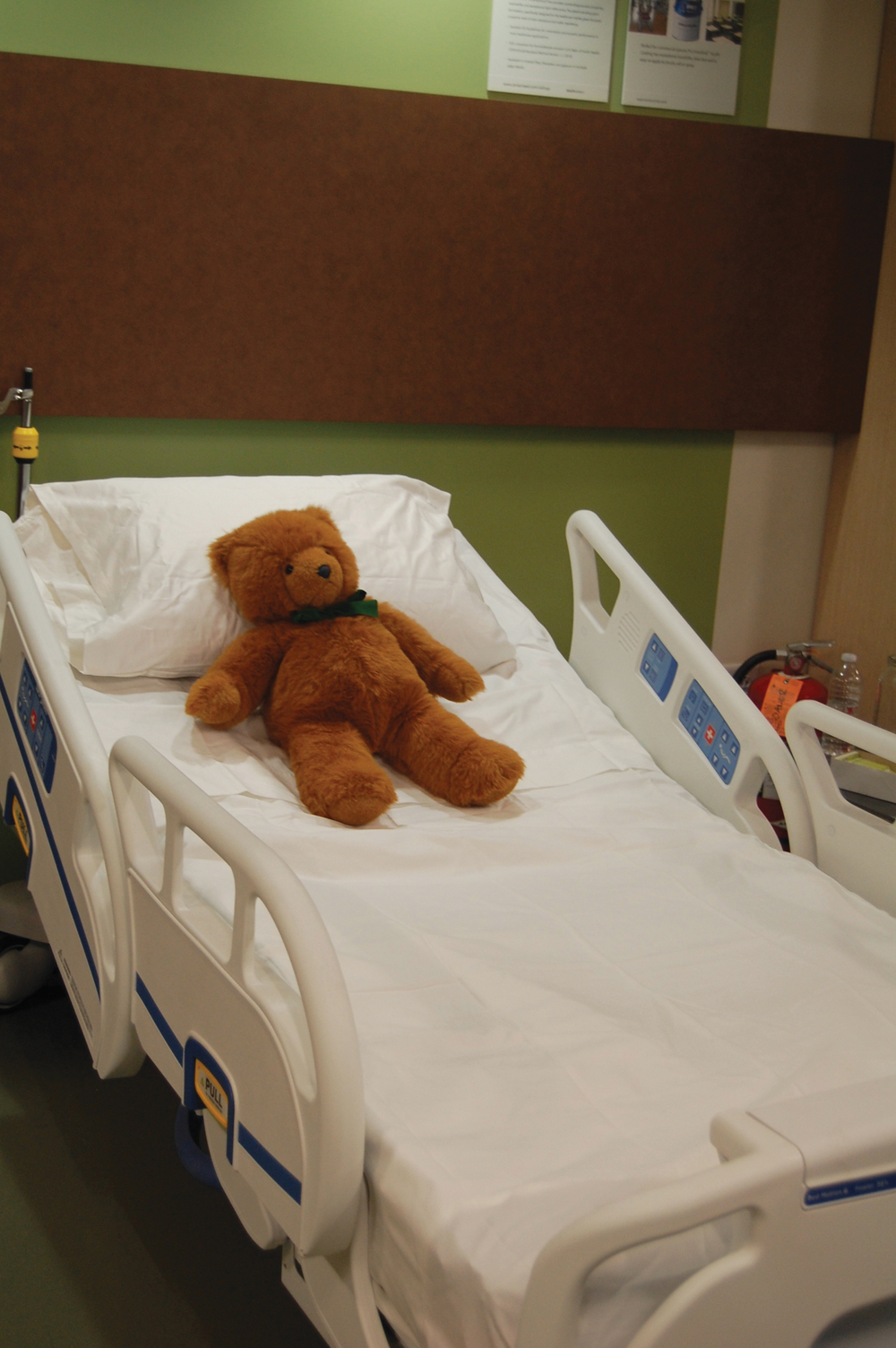
Patient area. Experts Jane Rohde, AIA, FIIDA, ACHA, Linda Gabel, IIDA, AAHID, and CBRE Healthcare advised on the design of the unit.
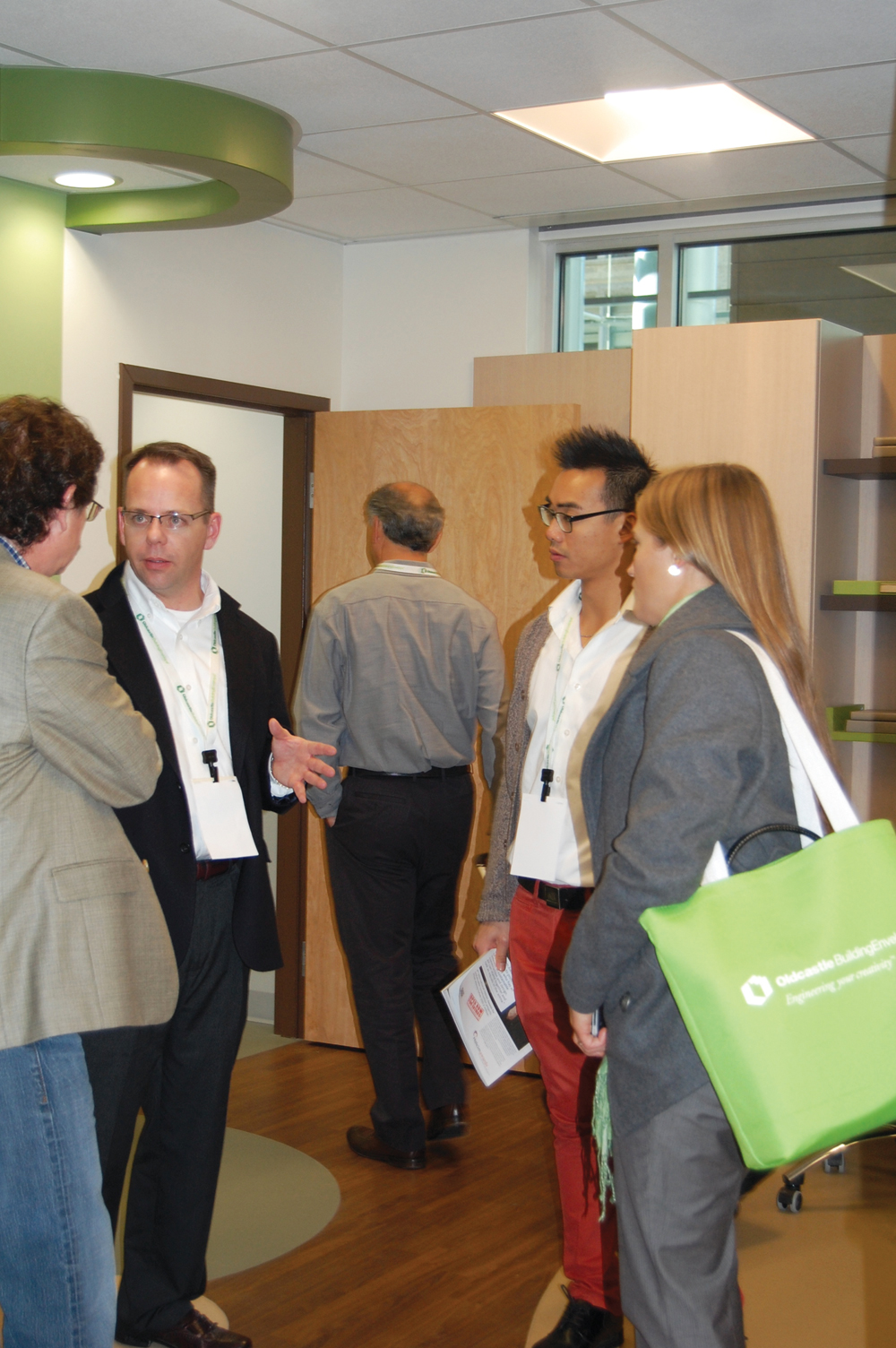
Last month, more than a thousand green builders toured Pedia-Pod at the Pennsylvania Convention Center, Philadelphia.
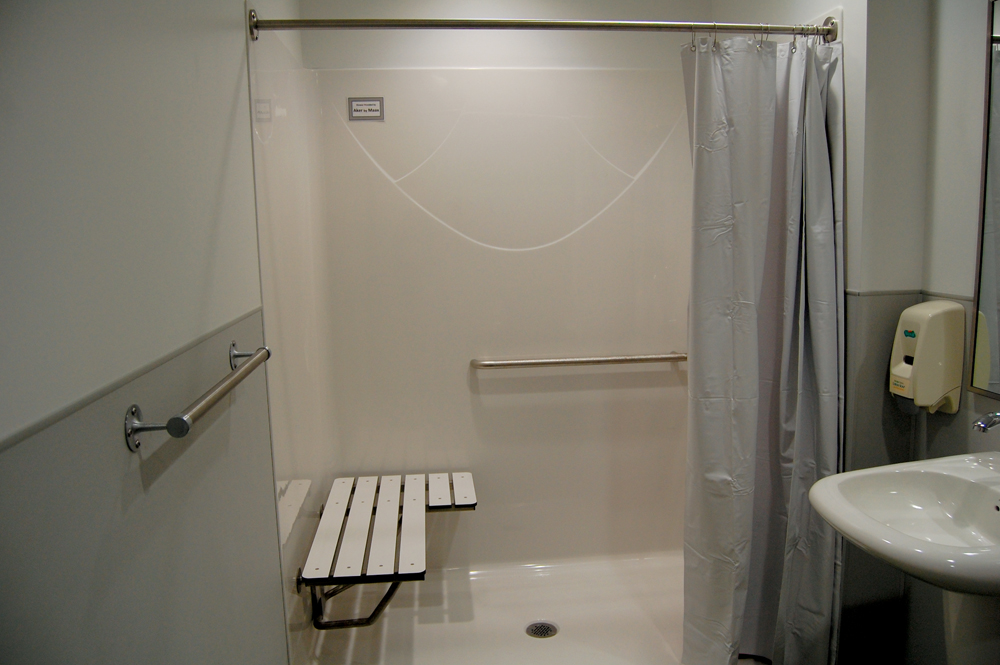
The ADA-compliant bathroom features grab bars throughout and an accessible shower.
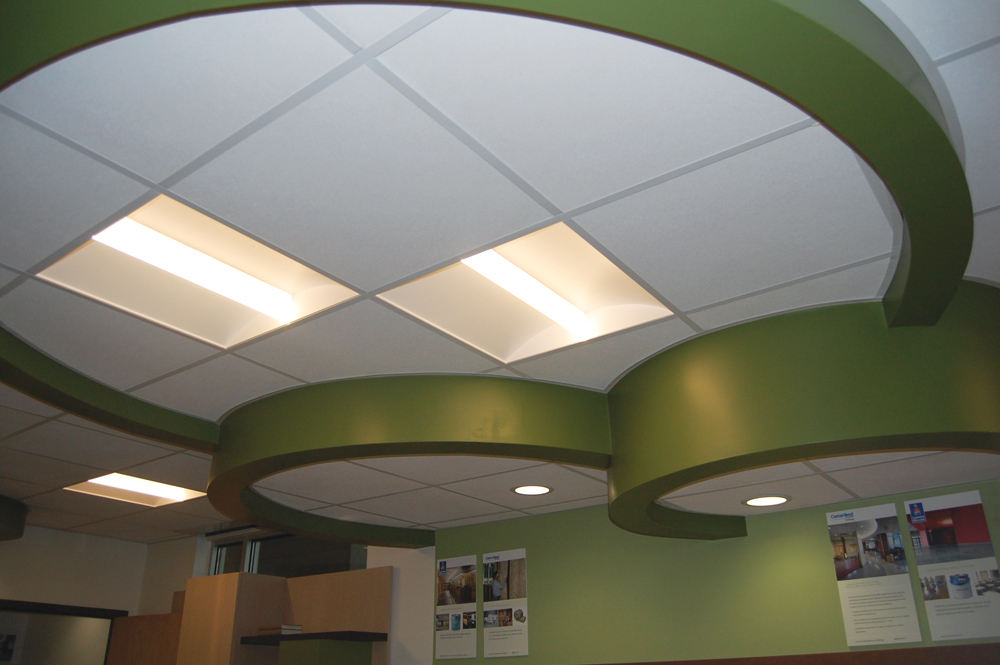
Energy-efficient lighting/controls provide illumination without disrupting the child’s circadian rhythm.
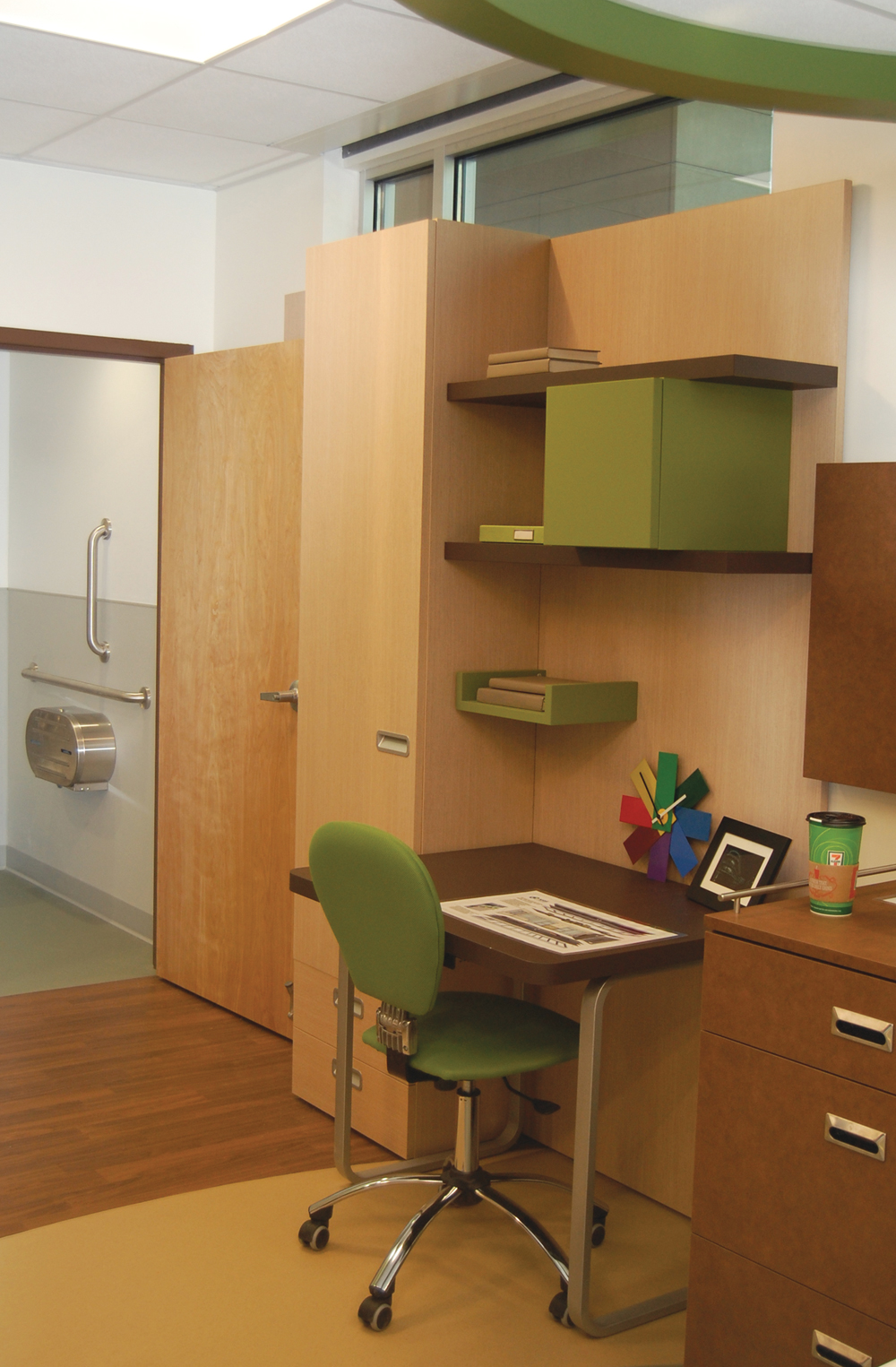
A convenient desk area offers storage and organization for medical staff, while taking up minimal space.
Related Stories
| Nov 14, 2011
Griffin Electric completes electrical work at Cary Arts Center
The Griffin Electric team was responsible for replacing the previous electrical service on-site with a 1000A, 480/277V service and providing electrical feeds for a new fire pump chiller, six air-handlers and two elevators.
| Nov 14, 2011
303 East 33rd Street building achieves LEED-NC
The 165,000 sf 12-story residential building is the first green development to be LEED certified in the Murray Hill neighborhood of Manhattan.
| Nov 14, 2011
VanSumeren appointed to Traco general manager
VanSumeren will draw on his more than 20 years of experience in manufacturing management and engineering to deliver operational and service excellence and drive profitable growth for Traco.
| Nov 11, 2011
By the Numbers
What do ‘46.9,’ ‘886.2,’ and ‘171,271’ mean to you? Check here for the answer.
| Nov 11, 2011
Streamline Design-build with BIM
How construction manager Barton Malow utilized BIM and design-build to deliver a quick turnaround for Georgia Tech’s new practice facility.
| Nov 11, 2011
AIA: Engineered Brick + Masonry for Commercial Buildings
Earn 1.0 AIA/CES learning units by studying this article and successfully completing the online exam.
| Nov 11, 2011
How Your Firm Can Win Federal + Military Projects
The civilian and military branches of the federal government are looking for innovative, smart-thinking AEC firms to design and construct their capital projects. Our sources give you the inside story.
| Nov 10, 2011
BD+C's 28th Annual Reconstruction Awards
A total of 13 projects recognized as part of BD+C's 28th Annual Reconstruction Awards.
| Nov 10, 2011
Grousbeck Center for Students & Technology opens doors
New Perkins School for the Blind Building is dedicated to innovation, interaction, and independence for students.


